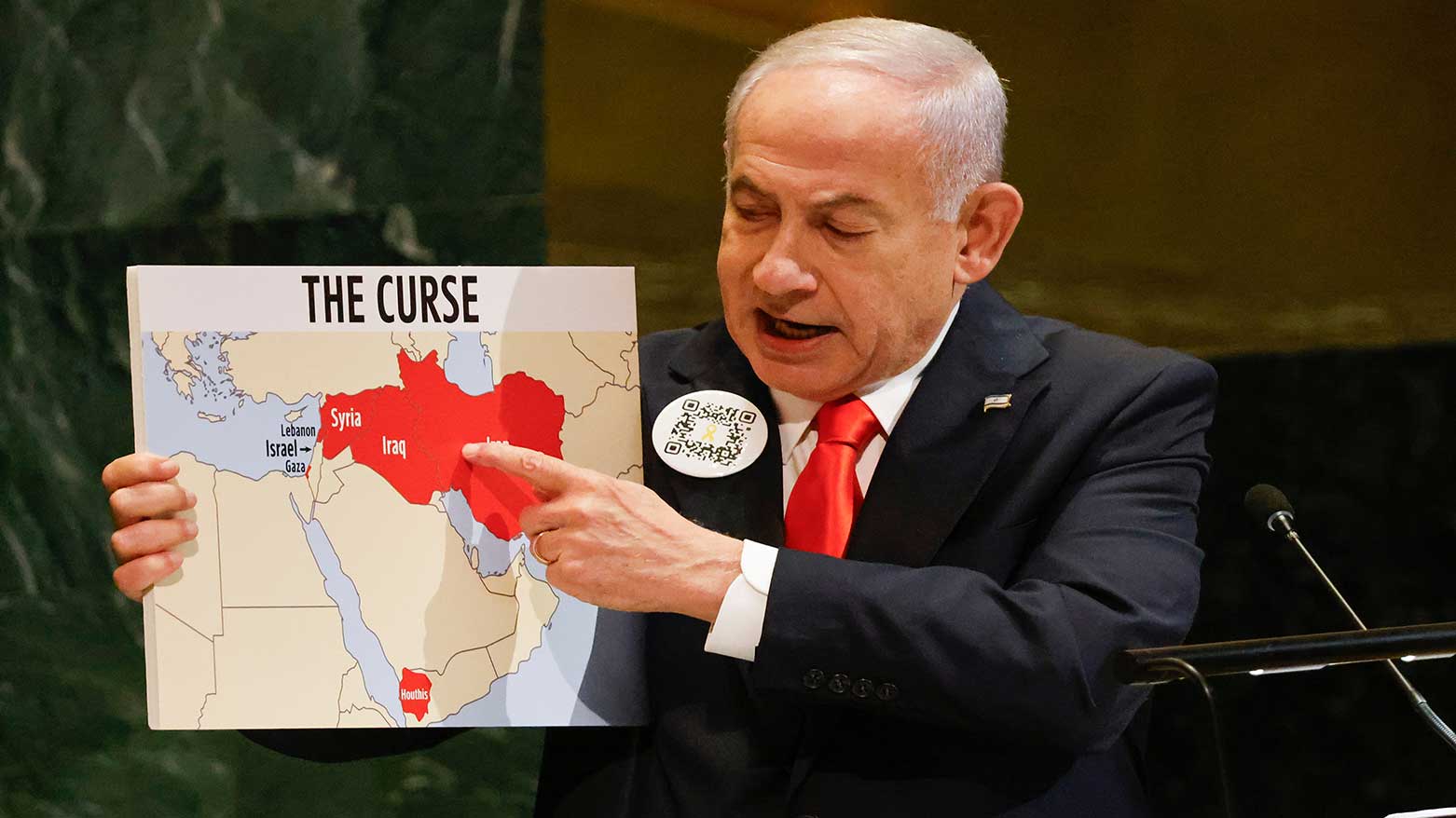Netanyahu Says Israel Knows Where Iran’s Uranium Stockpile Is Hidden
As UN sanctions return, Israel points to secret uranium reserves and Iran responds with a high-profile execution.

ERBIL (Kurdistan24) — Israeli Prime Minister Benjamin Netanyahu said his country has identified the location of Iran’s uranium reserves, warning that Tehran continues to enrich material close to weapons-grade levels in defiance of international agreements.
“We certainly know where it is. We have a pretty good idea of where it is,” Netanyahu told Fox News, adding that Israel has shared the intelligence with the United States.
According to the International Atomic Energy Agency (IAEA), Iran had accumulated more than 400 kilograms of uranium enriched to 60 percent purity by early summer, prior to the outbreak of hostilities between Israel and Iran in June. For nuclear weapons, enrichment would have to exceed 90 percent.
It remains unclear how much of this material remains intact following Israeli and U.S. strikes on Iranian nuclear and military facilities earlier this year. Tehran, for its part, denies that it is seeking nuclear weapons.
When pressed on whether Israel intends to seize the uranium, Netanyahu avoided giving a direct answer. Instead, he stressed the need to maintain pressure on Tehran:
“We must maintain diplomatic and economic pressure on Iran to make it clear that we will not tolerate a resumption of its efforts to build nuclear bombs aimed at destroying my country and yours.”
The remarks come as United Nations sanctions on Iran were reinstated on Sunday, nearly 10 years after the 2015 nuclear deal. Britain, France, and Germany triggered the so-called “snapback” mechanism, accusing Iran of breaching the Vienna accord by enriching uranium far beyond civilian-use levels.
Tensions Deepen with Execution of Alleged Israeli Spy
The dispute over Iran’s nuclear program is unfolding against the backdrop of ongoing shadow warfare between Tehran and Jerusalem. On Monday, Iran announced the execution of a man it described as one of Israel’s “top spies.”
Bahman Choubi Asl was hanged after being convicted of working for Israel’s Mossad intelligence agency, Iran’s judiciary reported via its Mizan Online website.
Authorities said he had “privileged access to vital and sovereign databases” and worked “closely” with Israeli intelligence. No details were given on when he was arrested.
The execution follows a bloody conflict in June, when Israel carried out unprecedented air strikes on Iranian government, military, and nuclear sites, killing senior officers, and nuclear scientists.
Iran retaliated with missile and drone attacks, marking the two countries’ first direct and open hostility.
Since the fighting ended, Iranian officials have pledged swift justice for those accused of collaborating with Israel. Earlier this summer, Tehran announced the arrest of 20 suspected collaborators and carried out several executions, including that of Roozbeh Vadi, accused of passing information on a slain nuclear scientist.
As reported by Kurdistan24, Iranian authorities on Sep. 17 executed Babak Shahbazi, who was convicted of spying for Israel's Mossad intelligence agency, hanging him at dawn after a legal process that human rights groups have long condemned as opaque and fundamentally unfair.
The official narrative of Shahbazi's espionage activities is intricately linked to the case of another man, Esmail Fekri, who was himself executed on June 16, 2025, on similar charges of spying for Israel. According to Mizan, Shahbazi first became acquainted with Fekri in a virtual group in late 2021.
The latest execution signals that Iran is intensifying its crackdown on alleged Israeli assets inside the country, even as international scrutiny mounts over its nuclear program and the reimposition of global sanctions.
Iran’s People Bear the Brunt of Global Pressure
At the same time, the reimposition of UN sanctions is compounding an already dire economic reality for ordinary Iranians. The rial’s collapse, coupled with soaring food and fuel prices, has eroded household purchasing power and left many struggling to meet basic needs.
Inflation has spread across nearly all sectors, from essential goods to medicine and education, tightening the squeeze on a society already battered by years of international isolation and internal mismanagement.
As Iran hardens its stance against Israel and the West, its population finds itself caught between geopolitical confrontation and economic decline, with little relief in sight.